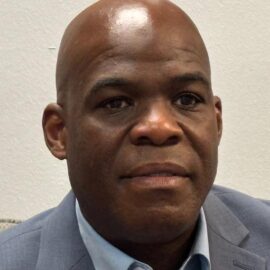
From a conservative view to a more liberal one.
Enjoy the mild weather, everyone! We might never have a summer this cool again. The extended heat waves that in recent weeks have turned the United States, Europe and South Asia into furnaces are not guaranteed to recur next year. Wild anomalies such as last week’s triple-digit temperatures in England — where an 85-degree day was considered positively hellish when I lived there in the 1990s — probably will not become the norm. But according to the U.S. National Oceanic and Atmospheric Administration, the planet’s 10 warmest years since record-keeping began have all been since 2010. It is hot and getting hotter. The question is what we’re going to do about it.
washingtonpost.com
Dispair is not an option as we have to do something. The question is what?
Despair may be justified, but it’s not a plan. Yes, the United States should lead the world in addressing the underlying problem — heat-trapping emissions — but 50 Republican senators, one Democrat (Sen. Joe Manchin III of West Virginia) and the U.S. Supreme Court stand in President Biden’s way. I hope Biden uses all the executive power he can muster to hasten a transformation to clean energy. I hope market forces, encouraged by environment-minded consumers, succeed where politicians are failing. But none of that will make our summers any more bearable in the foreseeable future, especially in big cities that function as heat islands. Or stem the coastal flooding that results from sea-level rise. Or prevent the massive wildfires that are scorching Western states. As a society and as individuals, we are going to have to adapt to global warming because it will get worse before it gets better.
Now we go to potential solutions, something that was missing from the conservative review.
For mayors and other local officials, that means developing robust plans for heat waves that are life-threatening for vulnerable populations. In Europe, air conditioning has traditionally been unnecessary, but more than 1,700 people died in Spain and Portugal alone from last week’s oppressive heat, according to the World Health Organization. Most U.S. cities in the Sun Belt already are so dependent on air conditioning that a concern becomes the added strain a severe heat wave places on power grids. Those supplies need to be bolstered — but with power from clean-energy sources. The first time I made a summertime visit to downtown Phoenix — the temperature was “only” 105 degrees — I was surprised and relieved to be occasionally sprayed by a cooling mist as I walked down the sidewalk. It once would have been crazy to think about installing such systems in a northern city like Newark, which for the first time just saw five consecutive days of temperatures over 100. Not so crazy anymore. Most cities already know how to set up cooling centers where residents without air conditioning can spend dangerously hot days in safety. In D.C., some municipal swimming pools have been kept open later than usual during the ongoing “heat emergency.” But few city governments do a good enough job of reaching those most at risk — senior citizens and shut-ins who do not have air conditioning and who may not have anyone to check on their well-being. If this kind of heat is going to be the norm, mitigation of extreme heat’s impact on human health has to be considered a matter of public safety and a vital city service.
This is where we are as A/C is a must here. The West Coast has another problem.
The heat has changed the nature of the West’s annual wildfires, making them bigger, hotter and more unpredictable. In California, the Oak Fire near Yosemite National Park exploded over the weekend into the biggest conflagration of the season. “The fire behavior that we’re seeing on this incident is really unprecedented,” Cal Fire Battalion Chief Jon Heggie told CNN, adding that the fire is moving “extremely fast.” It had burned nearly 17,000 acres as of Monday and caused at least 3,000 people to evacuate. Wildfire-prone states and the federal government are going to have to reevaluate their forest-management strategies in light of the new normal — extreme heat, extreme drought and an accumulation of dry underbrush that allows fires to spread much faster than in the past.
We also have to worry about sea level rise and flooding.
Meanwhile, low-lying East Coast cities such as Miami; Charleston, S.C.; and Norfolk experience far more days of flooding each year because of sea-level rise, which of course is caused by global warming. Some harbors will eventually have to install massive barriers to hold back the waters — especially for times when those waters are roiled by hurricanes that climate change is making wetter and more intense. It is vital that the world curb greenhouse-gas emissions before the worst scenarios become inevitable. But it is equally vital that we — as a nation, as communities, as individuals — take needed steps to deal with the climate change we’ve already caused. The heat is on, and we have no choice but to stay in the kitchen.
Two views, One by Lowry that moans but has no solutions and one by Robinson who has solutions. Which do you prefer?



